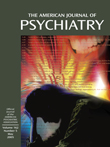Quetiapine Discontinuation Syndrome
To the Editor: We describe a case of incapacitating quetiapine withdrawal, its treatment, and possible causal mechanisms.
Ms. A, a 36-year-old woman with rapid-cycling bipolar II disorder and premenstrual mood exacerbation, was treated as an outpatient with lamotrigine, 400 mg at bedtime, and clonazepam, 0.5 mg t.i.d. Quetiapine, 100 mg at bedtime, was added for residual symptoms. Although the treatment was efficacious, Ms. A gained 20 lb in 6 months and asked to stop the medication. She was advised to decrease her quetiapine to 50 mg at bedtime. After 1 day, she reported nausea, dizziness, headache, and anxiety severe enough to preclude her normal daily activities. She was instructed to take quetiapine, 75 mg the next night, but her intolerable symptoms continued. They resolved when she returned to a dose of 100 mg at bedtime. A slower quetiapine taper of 12.5 mg every 5 days with the antiemetic ondansetron also failed. On a third attempt, prochlorperazine successfully reduced her discontinuation symptoms, although moderate nausea persisted for 2 days after the taper was completed. No other medications were changed, so quetiapine withdrawal was the most likely explanation for Ms. A’s symptoms.
To our knowledge, one previous case of quetiapine withdrawal has been reported (1). An inpatient with schizophrenia experienced nausea, emesis, lightheadedness, diaphoresis, orthostasis, tachycardia, and nervousness after abruptly stopping quetiapine, 300 mg/day. These symptoms resolved when quetiapine was restarted and cross-tapered to risperidone.
Three neurotransmitters may play a role in this discontinuation syndrome. Quetiapine is a dopamine D2, serotonin 5-HT1A, and histamine H1 receptor antagonist. Dopamine, serotonin, and histamine receptors are present in the chemoreceptor trigger zone, a medullary site that causes nausea and emesis when stimulated. Dopamine and serotonin also influence autonomic control in brainstem nuclei. Therefore, these neurotransmitters are present in brain regions that could cause nausea and autonomic dysregulation. Ms. A’s symptoms were similar to those reported in patients who were withdrawn from other atypical (2) and typical (3) antipsychotics, implicating dopamine. They also resembled the selective serotonin reuptake inhibitor discontinuation syndrome (4), suggesting a role for serotonin. However, ondansetron, a 5-HT3 antagonist, was ineffective in controlling nausea in this case, whereas prochlorperazine, an H1 and D2 antagonist, mitigated the severest symptoms. These clinical findings and the fact that quetiapine affects predominantly histamine at low doses suggest that Ms. A’s symptoms were due to withdrawal of H1 antagonism. However, her therapeutic improvement at only 100 mg/day raises the possibility that she was highly sensitive to all of quetiapine’s pharmacological effects.
This unusual case demonstrates that quetiapine may cause significant discontinuation symptoms in susceptible individuals. Prochlorperazine may attenuate these symptoms, allowing for successful weaning.
1. Thurstone CC, Alahi P: A possible case of quetiapine withdrawal syndrome. J Clin Psychiatry 2000; 61:602–603Crossref, Medline, Google Scholar
2. Nayudu SK, Scheftner WA: Case report of withdrawal syndrome after olanzapine discontinuation. J Clin Psychopharmacol 2000; 20:489–490Crossref, Medline, Google Scholar
3. Tranter R, Healy D: Neuroleptic discontinuation syndromes. J Psychopharmacol 1998; 12:401–406Crossref, Medline, Google Scholar
4. Schatzberg AF, Haddad P, Kaplan EM, Lejoyeux M, Rosenbaum JF, Young AH, Zajecka J: Possible biological mechanisms of the serotonin reuptake inhibitor discontinuation syndrome. J Clin Psychiatry 1997; 58(suppl 7):23–27Google Scholar



